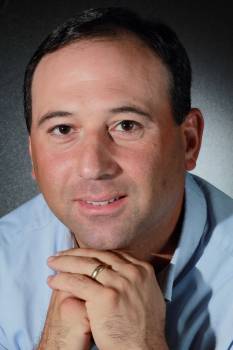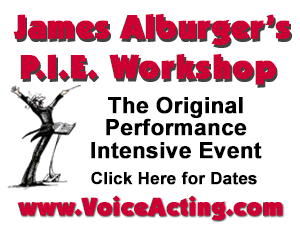|
MUSIC COPYRIGHTS Check If Your Demo Music Is Licensed: New TuneSat Service Tracks Internet Plays January 12, 2013  By Robert J. Sciglimpaglia Jr. By Robert J. Sciglimpaglia Jr.Voice Actor & Attorney Have you heard about TuneSat? Well, for a voice over artist, producer - or anyone who posts their own demo or the voice over demos of others on their website - it's a name to learn about quickly. TuneSat is new software that encrypts music or sound effects to track how many times that music or sound effect has been played over the Internet. Its technology was developed by Scott Schreer, the president of Freeplaymusic.com (see my earlier articles about Freeplay Music). So far, ASCAP (one of the collectors of music royalties), is refusing to accept TuneSat technology as an accurate monitor for plays of a music track over the Internet. But this is not preventing TuneSat technology from being used by music libraries all over the Internet, as described in this Digital Music News article. DEMANDING $2,500 LICENSE FEES As explained in earlier articles, FreePlay Music was - and still is - sending emails to voice over artists, producers and others who are using unlicensed copies of FreePlay Music tracks being displayed on the Internet, demanding sums of $2,500 per track as a "sync license" to use their music. And now, TuneSat is selling its technology to other music libraries - 5-Alarm Music and MusicTrax Productions, for example - which are following suit. This has snared some big players in the business (whose names I cannot divulge, due to attorney/client privilege). KNOW YOUR MUSIC SOURCE Don't let that happen to you. My recommendations are: 1. If you have a voice over demo that does not consist of actual gigs, and you do not know the source of the music on that demo, TAKE IT DOWN IMMEDIATELY from any website until you get the physical music licenses in your hand. 2. If you have a website that hosts voice over demos, DO THE SAME until you either verify that all music on those demos are properly licensed, or you set up your website so that it complies with the "Safe Harbor" provisions of the Digital Millennium Copyright Act. (For more information about that click here: www.copyright.gov/onlinesp.) 3. If you are a producer of voice over demos, or other content that uses music that will ultimately end up on the Internet, MAKE SURE you read the TERMS OF SERVICE for the website where you downloaded the music. Follow the procedures to properly license the use of that music. For further information on Mr. Schreer and TuneSat, you can check these links: ------------------------- ABOUT ROBERT Robert J. Sciglimpaglia Jr. is a popular voice actor, actor and attorney representing voice actors, actors and other performers. He is also owner of All In One Voice, a voice over instruction and business/legal services firm. And he is author of the 120-page Voice Over LEGAL eBook, a comprehensive guide to business and legal issues for voice actors and other performers, including demos and copyright issues.
Email: robscig@usa.net
Web: www.allinonevoice.com Voice Over LEGAL eBook: www.VoiceOverLegal.com |
|
|
Get your bi-weekly dose here ... all things VO!
On Michael Langsner's Voice-Over Roadmap Podcast
For essential voice-over business strategies
Inspiring interviews help your VO career
As of the NEW website launch, 03/22/2012










You are correct that copyright claims can certainly be made by the owners for their copy, especially for audio books and corporate e-learning scripts. The issue with music on demos certainly affects, not only voice over artists who post their demos on their websites, but also any site that posts demos, like agencies, pay to plays, producers, etc, and in fact, some of these entities have been hit with demands by TuneSat. Distributing through tape or CD is not the same as "broadcasting" over the internet, which is where this particular issue arises.
And when demos were only distributed by CD, tape, etc, there was probably little practical way of tracking all demos. Anyway, thanx for your thoughts and any further enlightenment you can throw on this brave new Internet world.
Best,
Rebecca of www.LoveThatRebecca.com